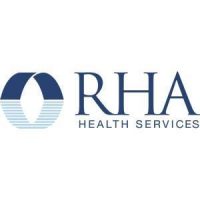Addiction Recovery Care Association
Drug Rehab Center in Winston-Salem, North Carolina
Addiction Recovery Care Association is a CARF-accredited non-profit organization providing comprehensive addiction treatment services through various therapeutic approaches and levels of care, including 12-Step Facilitation, CBT, DBT, and more, as well as additional support resources.
About This Winston-Salem, NC Facility
Addiction Recovery Care Association (ARCA) is a nonprofit treatment facility located in Winston-Salem, North Carolina, dedicated to helping individuals overcome substance abuse and addiction. With a family-focused approach and highly skilled staff, ARCA fosters an environment conducive to recovery.
- Provides individualized care with a low client-to-staff ratio
- Serene campus setting with dormitories, dining hall, and recreational areas
- Comprehensive services including detox, residential, and aftercare programs
- Treats co-occurring mental health disorders alongside addiction
Accredited by CARF, ARCA adheres to the highest standards of excellence in addiction treatment. Their mission emphasizes creating a supportive, family-like atmosphere to guide clients on their journey to sobriety.
ARCA offers a range of evidence-based treatments for alcohol, opioid, and substance use disorders. Services include individual and group counseling, behavioral therapies, and holistic approaches tailored to each client's needs. Inpatient and outpatient programs provide varying levels of care and support.
Genders
Ages
Modality
Additional
Accreditations

CARF
The Commission on Accreditation of Rehabilitation Facilities (CARF) is a non-profit organization that specifically accredits rehab organizations. Founded in 1966, CARF's, mission is to help service providers like rehab facilities maintain high standards of care.
Conditions and Issues Treated
Substance abuse refers to the intensive and inappropriate use of psychoactive substances. Psychoactive substances are those that affect brain function. These include illegal drugs, alcohol, and even the excessive use of prescription drugs. The overuse of psychoactive substances leads to severe physical or psychological dependence. It also affects the social life and relationships of the affected individual. Substance abuse is treatable.
The duration of treatment at Addiction Recovery Care Association in Winston-Salem can require weeks or even months depending on the severity of the condition as there is a risk of relapse. Treatment options include medications, counseling sessions, various types of behavioral therapy, and group therapy in different combinations.
Addiction to prescription opioid painkillers like oxycodone and hydrocodone, and illicit opioids such as heroin, leads to potentially life-threatening withdrawal symptoms when discontinued. Opioid addiction treatment typically involves an inpatient stay at facilities like Addiction Recovery Care Association to make sure they get through withdrawal safely. Treatment also includes comprehensive mental health counseling.
Mental illness includes conditions such as anxiety, depression, schizophrenia, bipolar disorder. It can also happen that mental illness causes drug addiction and vice versa. Addiction Recovery Care Association in North Carolina knows it is vital to diagnose dual diagnosis or co-occurring disorder.
Levels of Care Offered
This center offers a variety of custom treatment tailored to individual recovery. Currently available are Aftercare Support, Detox, Drug Rehab, Dual-Diagnosis, Inpatient, Residential, with additional therapies available as listed below.
One of the first things an addict should do when entering treatment is to abstain from using illicit drugs completely. Depending on the length of time that the person has been using, the addict may have to go through alcohol or drug withdrawal. Fortunately, detox doesn’t have to be done alone, and withdrawal symptoms can be managed medically in an inpatient or outpatient setting. While detox may be uncomfortable, it is not life-threatening. Detoxification allows the addict to rid the body of all traces of drugs or alcohol and gives the addict a clean slate for their recovery.
Inpatient programs are intensive regimes that require individuals suffering from serious addictions to admit themselves into a controlled environment. Inpatient programs in North Carolina generally span over 28 days to six months. The first step in an inpatient program is medically assisted detox. Doctors and addiction specialists at Addiction Recovery Care Association monitor the individual’s vital signs as the drugs leave their system. Some inpatient rehab programs also provide counseling for family members to provide encouragement and emotional support. In inpatient programs, patients have access to 24-hour medical supervision.
Residential treatment programs are those that offer housing and meals in addition to substance abuse treatment. Rehab facilities that offer residential treatment allow patients to focus solely on recovery, in an environment totally separate from their lives. Some rehab centers specialize in short-term residential treatment (a few days to a week or two), while others solely provide treatment on a long-term basis (several weeks to months). Some offer both, and tailor treatment to the patient’s individual requirements.
Treatment is just a first step in sustaining sobriety. After rehabilitation, counseling for aftercare helps the person adapt to a life without drugs. A sober living facility in Winston-Salem, job therapy, or educational assistance may be included in this service, managed by Addiction Recovery Care Association. This is when a preventive strategy for relapse starts to take shape.
Addiction Recovery Care Association‘s Therapies & Programs
In addiction recovery at Addiction Recovery Care Association, therapy plays a significant role. This helps patients get to the root of their addiction and discover how the problems that contributed to their use can be handled better. Therapy can be performed in a group and one on one settings. The patient interacts with the therapist in a one-on-one atmosphere during individual therapy. This encourages them to reflect on the underlying addiction problems and develop ways to avoid potential future abuse.
Addiction and alcoholism affect the entire family. For this reason, family therapy is vital to a person’s recovery from addiction. In contrast to couples counseling, family therapy at Addiction Recovery Care Association may include siblings, children, parents, and other significant people in the recovering person’s life. Family support is one of the most important pillars of recovery.
Many people turn to drugs and alcohol as a way of processing trauma that has affected them in the past. Trauma can include abuse, neglect, the loss of a loved one and other unpleasant incidents. Trauma therapy at Addiction Recovery Care Association helps patients process trauma. It gives them the tools to deal with it in a healthier manner.
Dialectical behavioral therapy (DBT) is a type of Cognitive Behavioral Therapy that focuses on eliminating specific negative thoughts such as suicidal thoughts that can potentially lead to an individual inflicting self-harm. It is useful in the treatment of patients exhibiting uncontrollable emotions, intense mood swings, and borderline personality disorders.
The term “Dialectic” means the integration of opposites. In the substance abuse context, DBT refers to accepting the patient’s addiction and working to change their thoughts and behavior. It improves life skills such as controlling the intense emotions without reacting impulsively, resolving the interpersonal conflicts effectively, and promoting awareness about self and others.
Cognitive Behavioral Therapy (CBT) examines the relationship between a patient’s thoughts, feelings and behaviors. Addiction Recovery Care Association aims to establish a healthy response to thoughts and feelings as an alternative to turning to drugs and alcohol. It also promotes healthy communication between addicts and those around them. It is and effective therapy for people suffering with all types of addictions.
Rational Emotive Behavior Therapy (REBT) is a type of cognitive therapy. It is based on the principle that irrational thoughts are responsible for the emotional and behavioral changes in addiction. So, the therapy starts with identifying the underlying irrational thoughts. These thoughts are then challenged and opposed logically and then replaced with positive thoughts. It also helps to change unwanted behavior with techniques such as meditation.
By imparting positive thoughts and emotions, Rational Emotive Behavior Therapy (REBT) makes the individual self-reliant with a capacity to handle the emotional and behavioral issues in future by themselves without professional help. This self-dependence benefits the patients and prevent relapses.
The recovery technique used by Alcoholics Anonymous is the 12 step program, but it can relate to any form of addiction. The 12 steps that addicts must take on the road to recovery are explained. Measures include acknowledging that you have a problem and agreeing to turn around your life. The curriculum, instructed by Addiction Recovery Care Association, also requires a belief in a greater power and making amends to others.
Payment Options Accepted
For specific insurance or payment methods please contact us.
Is your insurance accepted?
Ask an expert, call (888) 674-0062
Additional Details
Specifics, location, and helpful extra information.
Winston-Salem, North Carolina 27107 Phone Number(336) 784-9470 Meta DetailsUpdated April 15, 2024
Staff Verified
Patient Reviews
There are no reviews yet. Be the first one to write one.
Winston-Salem, North Carolina Addiction Information
North Carolina ranks 29th in the nation for overall substance abuse. Many of the drugs abused in the state are illicit, and many of these are opioids. Prescription opioids are readily available due to the high rates of medical workers prescribing them. The number of prescriptions has increased tenfold since the 1980's. Opioid overdoses are the most common type of death in North Carolina.
Winston Salem, NC, saw 982 drug-related incidents, a slight increase from 2011's incidents. Commonly abused drugs in Winston Salem are Alcohol, Marijuana, Prescription Drugs, Cocaine, and Heroin. Every day, 43 people die from drug overdoses, and addiction to drugs and alcohol costs the country an estimated $740 billion per year. Addiction treatment in WS often focuses on a combination of therapies, such as behavioral therapy, medication management, holistic treatment, etc.
Treatment in Nearby Cities
- Black Mountain, NC (126.0 mi.)
- Winterville, NC (157.6 mi.)
- Summerfield, NC (17.2 mi.)
- Black Creek, NC (126.8 mi.)
- Star, NC (48.7 mi.)
Centers near Addiction Recovery Care Association
The facility name, logo and brand are the property and registered trademarks of Addiction Recovery Care Association, and are being used for identification and informational purposes only. Use of these names, logos and brands shall not imply endorsement. RehabNow.org is not affiliated with or sponsored by Addiction Recovery Care Association.










